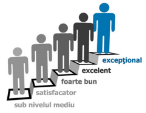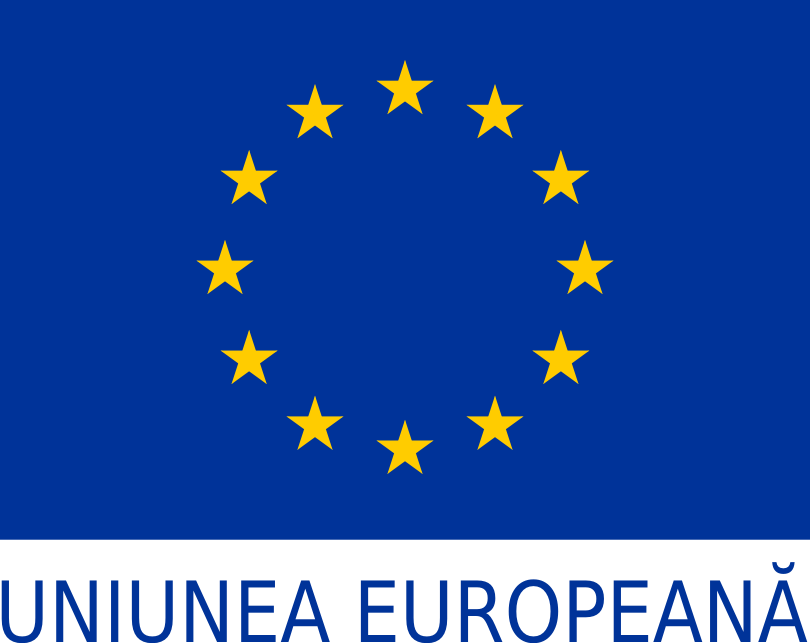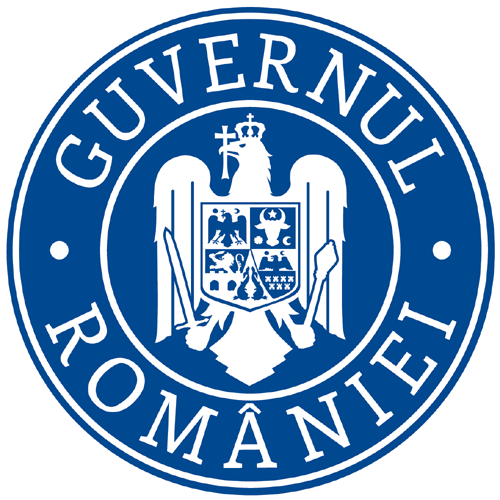Conferinta internationala post - extins

International Conference Evaluation of ESIF interventions in Europe. Between tradition and innovation was organized on May 5-6, 2022 by the Ministry of Investments and European Projects and the Evaluation Network in Romania, with financial support from the ERDF through OPTA 2014-2020.
The event took place in hybrid format, with physical participation at Radisson Blu Hotel Bucharest, as well as online, through the Zoom platform, gathering 325 participants. Participants include representatives of the public administration from the Member States of the European Union and the European institutions, evaluators, and representatives of academia, as well as members of the RER.
The event also enjoyed the active contribution of representatives of European and national institutions, representatives of academia and research institutions, as well as professionals in the field of international evaluation, with 35 speakers and moderators present.
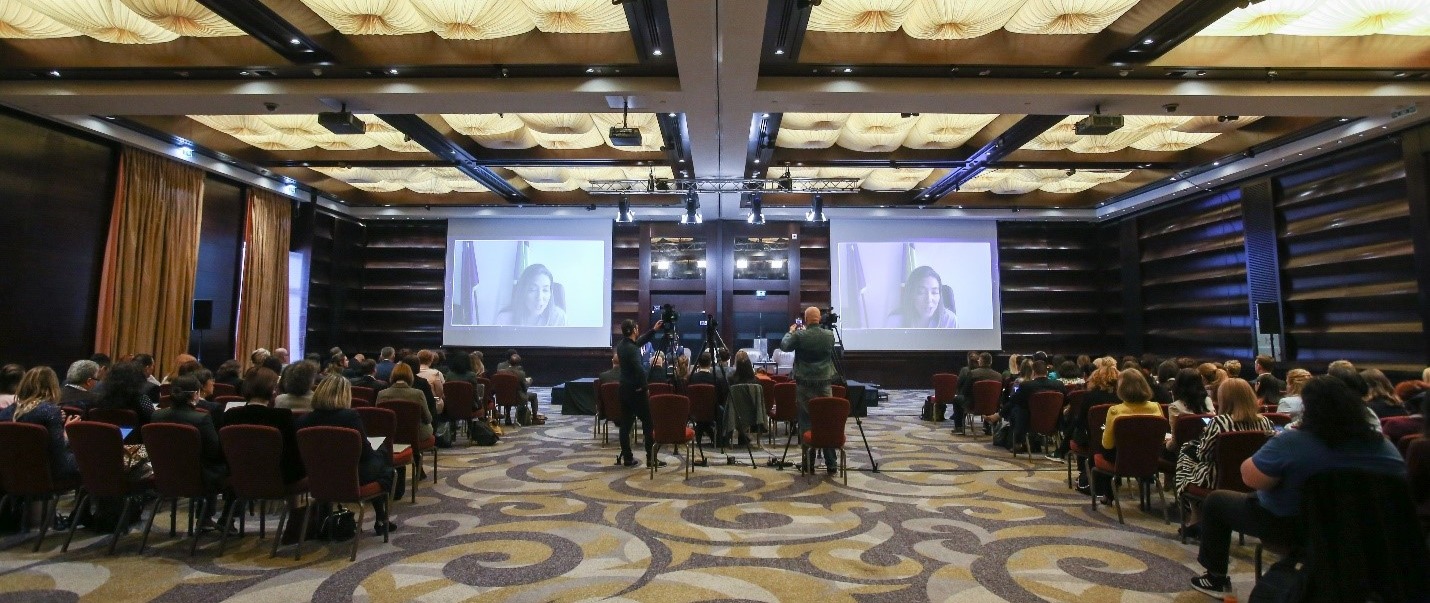
International Conference “Evaluation of ESIF interventions in Europe. Between Tradition and Innovation” aims to support European-wide approaches to the evaluation of targeted public policy interventions during 2021-2027 programming period, based on lessons learned from the FESI 2014-2020 evaluations. To allow this, the structure of the event involved the organization of 4 plenary debate sessions and 3 thematic sessions for the exchange of good practices and lessons learned from the evaluation practice.
The introductory session of the Conference included a series of presentations on the global context, with the topics discussed being the implications of the Covid-19 pandemic on public policy for increasing resilience and the transition to a digital society and the implications for public policy. Paradigm shifts on the functioning of public administration, technologies that facilitate digital transformation (such as artificial intelligence - AI, the Internet of Things - IoT, Robotic Process Automation - RPA) and possible scenarios for this transformation, as well as the benefits or challenges of the transition were discussed - presentation.
The first plenary session, entitled "Evaluation of ESIF interventions – keeping up with the change?", included five interventions on the following topics:
- What were the challenges of evaluation in the last 3 years (e.g., fast moving context, closure and opening of new programming period) and were the challenges overcome?
- Is the evaluation still fit for purpose given its role to support policy formulation effectively?
- What should be changed to tackle challenges and make evaluation more effective?
The analysis of the heterogeneous effects of policies and programs in different contexts, the challenges of integrating multi-level and multi-method evaluation (e.g., how should evaluations address the multidimensional nature of interventions?) and ways to integrate ESI evaluations with national evaluation, were topics discussed during this session. The presentation is available here.
The second plenary session addresses the Lessons learned from Cohesion Policy evaluation for the recovery of post-pandemic Europe, by organizing debates on:
- The Cohesion Policy between results and impact: what did we do right and what could we have done better? Case studies: (i) Green, digitalized, and automated economy, (ii) Skilled, mobile labor in a remote work regime, (iii) Sustainability and climate change and (iv) Demographics, poverty, and inclusion,
- How were the lessons learned integrated into the design of Recovery and Resilience Facility? Did lessons-learned from the implementation of Cohesion Policy support appropriate delivery mechanisms for RRF?
- Synergies between Cohesion Policy and Recovery and Resilience Mechanism for a smarter, greener and more inclusive Europe? How can evaluation support better synergies?
- Synergies between post-2020 public policies: a smarter, greener, more interconnected and more social Europe?
The pandemic, the energy transition and the war in Ukraine have generated new needs and new spending, increasing fiscal deficits. Expansionary fiscal policy in many countries continues to stimulate demand, adding to inflationary pressures. At the same time, recent disruptions (including the pandemic, the supply shortfall, the war in Ukraine) have increased the need to increase and accelerate public policy interventions in several key areas. Governments face multiple challenges, which require additional spending on public debt and already large deficits. In this context, the plenary session 2 discussed the approach on how EU funds can help address these pressures, highlighting their effective use, which is crucial, including reallocating spending from "traditional" targets to new priority areas.
The introduction to this session is available here.
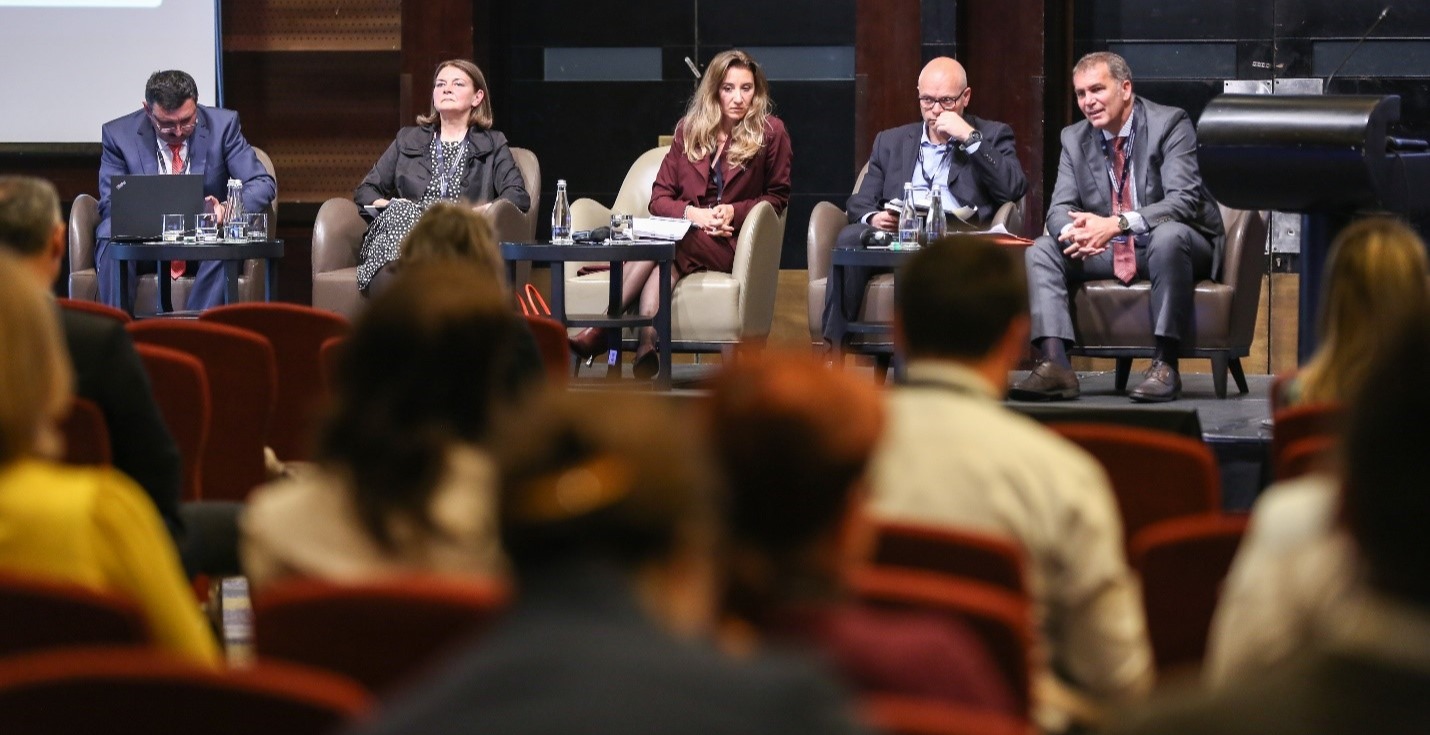
The first day of the International Conference ended with 3 thematic sessions on “Interventions with impact and evidence-based evaluations” held in parallel, during which various presentations took place, according to the Agenda, which led to interactive debates.
Thematic session 1: A Europe closer to citizens and more inclusive aimed to deepen the following themes:
- Investing in education: young people and skills for the jobs of the future,
- Between labor mobility and labor market flexibility: training, skills, and policies to keep up with the change,
- A Europe for all: less discriminated, less poor, less excluded.
Therefore, examples of evaluations, data limitations and solutions in this regard were the main aspects of the session. Also, the new counterfactual approach to the evaluation of ESI thematic objectives, namely the Cross-Regional Sequential Difference in Difference (CR-SEQDD) method, was another topic addressed (how to use, application and examples, challenges). Randomized controlled studies for social inclusion in education and measuring the phenomenon of homelessness in Romania were other topics addressed.
Presentations prepared and supported by the four speakers are available by accessing this link.
Thematic session 2: Research, development, and innovation in the digital age, composed interventions, with the involvement of the moderator and the 4 speakers on topics such as:
- Small-scale research and innovation for global transformation: small and medium-sized enterprises,
- Digital transformation on all levels: where are we in full pandemic times?
- Shaping the post-industrial society: from services to disruptive technologies,
- Entrepreneurs and researchers: working together for a better world.
The results of the ex-post evaluation of ERDF-supported research, technology and development interventions across Europe over the period 2007-2013, monitoring the digital transformation of the Public Administration and measuring its impact (including challenges and opportunities), and the Competitiveness Assessment of the Operational Program topics covered during this thematic session.
Presentations can be consulted by accessing this link.
Thematic session 3: Sustainable territorial development across the European Union, focused the interventions of five speakers on the topics of debate:
- Smart specialization and integrated territorial strategies,
- Strong, competitive cities and regions, with sustainable economies,
- Interconnectivity and accessibility – enhancing the life quality and encouraging social cohesion in and among territories.
The titles of the session refer to: rurality, agricultural economy, and structural funds - territorial congruences and inconsistencies; the sustainability of the Territorial Cohesion in Romania at NUTS 3 level, in the period 2014-2018; evaluation of territorial instruments in the period 2014-2020; assessing the impact of EU funding on ESPON research, as well as integrated location-based interventions.
The five presentations are available here.
The third plenary session kicked off the second day of the International Conference. The topic was "Evaluators in the cyberspace: navigating through the data", a subject in which a structured debate took place on the topics of discussion:
- Innovative methods for data collection, processing and visualization,
- Big data, open data & micro data: how can they be used to increase the quality of evaluations?
- Data in progress: regulations and practical and ethical implications for evaluators.
Its transition and management will lead to significant structural changes, and citizens and workers will be affected in different ways and not all Member States, regions and cities will start this process simultaneously or have the same capacity to respond. Thus, modelling the impact of the transition and the benefits of this transition (quantifying the impacts and prospects of the transition) was one of the topics strongly appreciated by the participants - presentation. Cohesion policy open data initiatives at EU level were also another important pillar of the session - presentation.
The moderator of this session, together with the four speakers, gave interesting presentations and discussions for the participants, available here, developing a very productive Q&A section. The recording can be viewed by accessing this link.
Closing plenary session entitled "Evaluation of ESIF interventions – where are we and where do we want to get?" it included the presentation of the conclusions formulated in the plenary sessions and in the previous thematic sessions.
The closing speech was given by Claudia Măgdălina, Representative of the Program Evaluation Bureau within MIPE, who highlighted the valuable contribution made by these debates in formulating the approach to evaluating ESIF-funded programs in the period 2021-2027.
The wide participation of the event confirms the interest in the topics addressed in the field of evaluation of public policies and programs by public administration representatives, representatives of academia-universities, research institutes, consulting companies and evaluators working in the field, as well as company representatives. civilians in Romania and other EU Member States.
For any questions regarding the conduct of the event you can contact us at the e-mail address: secretariat.rer@mfe.gov.ro .
